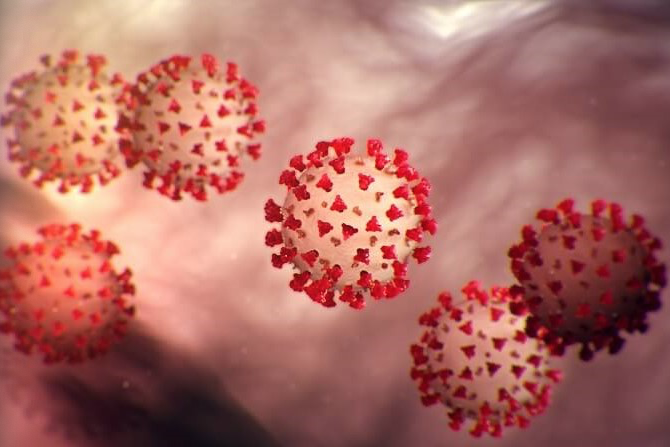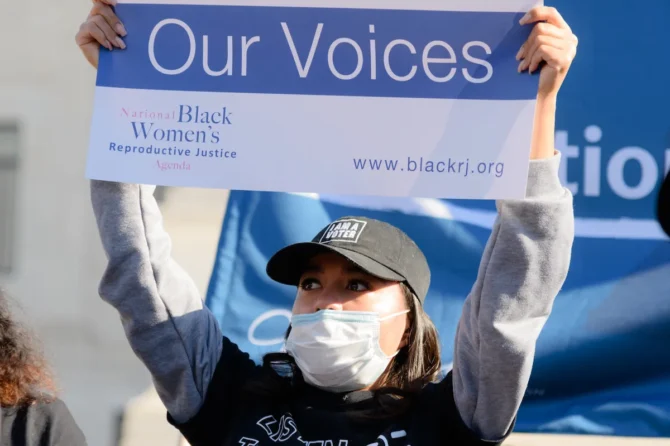There’s an explanation for why the viruses we have been seeing lately — COVID-19 and monkeypox — are not contained yet, said Dr. Joshua Sharfstein, former Maryland Health Secretary and professor at the Bloomberg School of Public Health.
Dr. Sharfstein told WTOP one of the reasons that coronavirus has been so difficult to contain is the United State’s very weak approach to public health. He said the same is true for monkeypox, overdose deaths and high maternal mortality rates.
Sharfstein also called for the government and private sector to see the value of public health.
“We have coasted in the United States on a very well-funded health care system that takes up 97-98% of the money for health,” said Sharfstein. “But we are paying the price in the context of these emergencies.”
It’s not enough to only take care of people who get severe disease, he said, “we really want to prevent illness. That’s what allows people to live their lives. That is the real value of public health,”
He wants to see greater leadership at the federal level for building a public health system and said there needs to be sustained core funding in the public health infrastructure.
“The funding should really be tied to very clear expectations for actions that health departments at the local or state level are taking to improve the health of their populations,” said Sharfstein.
Highlighting extra funding for public health found in the American Rescue Plan, he said he was hopeful that more help will come.
“It’s like realizing we are getting invaded but not funding a military, that is kind of the situation we are in with public health right now,” Sharfstein told WTOP.
Can we ever be ahead of something like Coronavirus?
Years of pandemic-life sparked questions of when the U.S. would return to normal and how the world would go about combating viruses. Actions from the federal and international community included increasing supplies like vaccines.
One of the goals became increasing the number of vaccinated people to stem the development of new, more harmful variants. Sharfstein said that these mutations were damaging but insightful.
“I think coronavirus has been teaching a master class in viral evolution,” Sharfstein said. “We seem to be getting these different variants, and they are able to do things we didn’t anticipate.”
He also said that federal action, alongside pharmaceutical and public health pressures, helped to encourage ideas like creating Omicron-specific vaccines.
The attitude we have to be careful about Sharfstein says is “‘I’m done with this no matter what happens because then it is sort of like challenging COVID to come up with something that could really disrupt our lives.”
As some continue to adhere to pandemic-era health guidance, questions about masking and social distancing persist. Calculated risks and precautions, he said, are decisions that he and those who may still be taking careful steps can make.
“I’m not particularly excited about getting COVID and risking long-COVID, but, on the other hand, I realize that there’s a lot of things I want to do, and I’m willing to take some kind of trade-off,” he told WTOP. “I think everyone’s got to make their own judgment in that way and decide what to do.”
Some of these decisions include controversial calls to mask or eat outdoors, limiting indoor interactions. Mask mandates in public and private spaces, for example, don’t seem out of the realm of opportunity for Sharfstein under some circumstances.
“If we had a surge in hospitalizations, if people were dying from a new variant, then I think that would change the calculus,” he said, adding that some may reconsider if they felt it could save their life to do so.
These at times politicized decisions over masks mandates, he said, mixed with the spreading of misinformation to damage the ability of officials to respond to critical public health concerns.
“There’s so much misinformation. We have a crisis, obviously, in our democracy, and all of those things have grave implications for health,” Dr. Sharfstein added.
COVID has a message for us
Amid the resurgence of polio, an increase in Monkeypox cases and ongoing COVID-19 infections, Dr. Sharfstein said there’s a common factor and a clear message: an investment in public health and long-term preventive action is necessary.
“One of the reasons COVID has been so difficult is because we have a very weak approach to public health in this country,” he said.
The vaccines, he added, helped to prevent significant illness and death, lessening the risks commonly associated with intense bouts of COVID-19.
The coronavirus is also sending us the message that it is still around, can still interrupt our lives and, for some people, it can present a deadly risk. Nevertheless, Sharfstein believes these moments of heightened public health concerns can be unifying and bolster a focus on public health in general.
“I’d like to think that health can be a point of coming together because we all want healthy long lives for ourselves and our children and our grandchildren, he said. “Those are shared values that could be a bit of a basis for collaboration.”
This article was written by WTOP, read more articles like this here.









